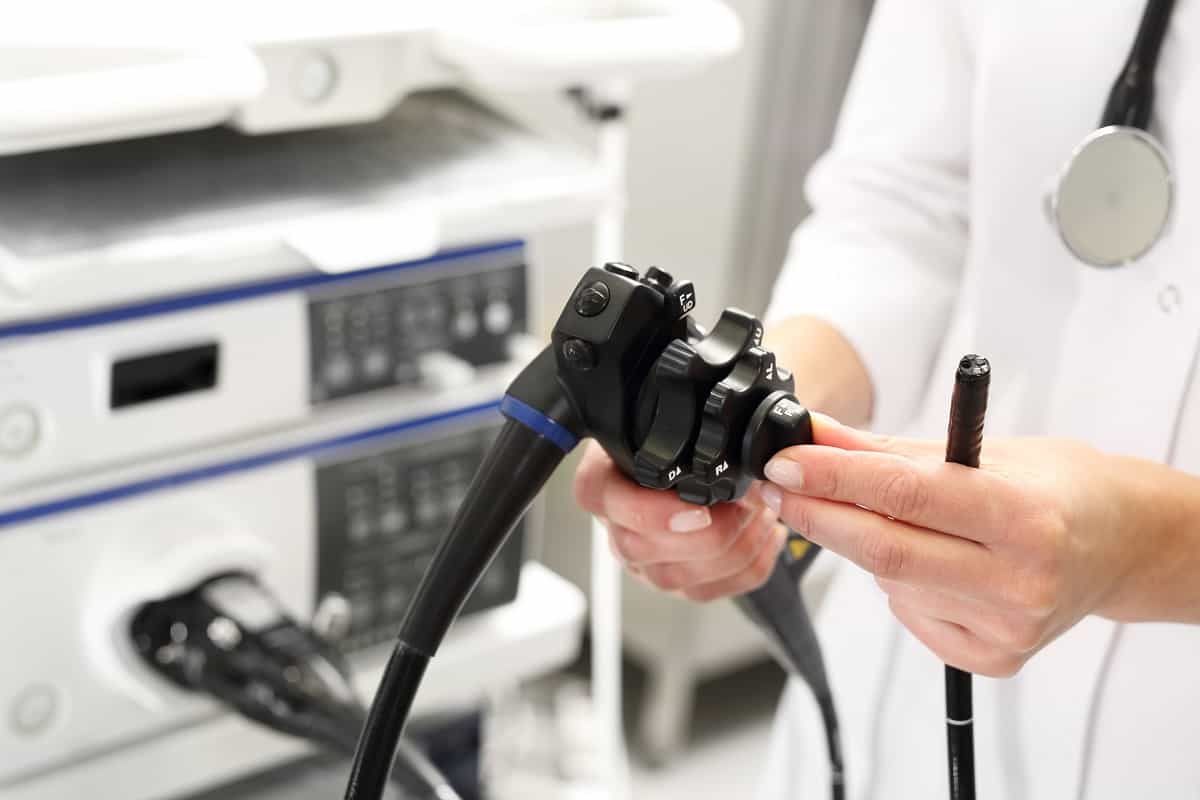Endoscopy and colonoscopy are medical procedures that involve the use of a special camera to look at parts of the gastrointestinal tract. In this post, Dr. Lynne Ahn will review the differences between the exams, including the reasons why a person may need one or both, and the diseases that each exam can detect.
Endoscopy At a Glance
During an endoscopy, an endoscope — a tube with a light and camera on the end — is inserted through the mouth and passed down the throat to evaluate the upper digestive tract. During the exam, Dr. Ahn will evaluate the esophagus, stomach and first part of the small bowel, called the duodenum. The camera projects a live stream of the images onto a screen in the exam room. After the exam, Dr. Ahn discusses her findings with the patient and recommends whether further testing or treatment is required.
An endoscopy lasts about 15 minutes and is not painful. Patients are given sedative medication to attain a relaxed, sleep-like state during the exam. To prepare for an endoscopy, patients are asked to refrain from eating or drinking anything for several hours prior to the exam. Additional instructions may be provided by Dr. Ahn and her team.
Why Would Someone Need an Endoscopy?
Endoscopies are recommended to individuals experiencing symptoms such as iron-deficiency anemia, nausea, chronic heartburn, difficulty swallowing, vomiting up blood, blood in the stool, abnormal weight loss or feeling full quickly.
What Diseases Can Be Found?
Endoscopies can confirm or rule out problems or diseases affecting the esophagus, stomach and the beginning of the small intestine.
Sometimes biopsy samples are taken to determine whether abnormalities detected on an X-ray or CT scan are cancerous; the biopsies are collected using long, thin surgical instruments and sent to a lab for evaluation.
Colonoscopy At a Glance
During a colonoscopy, a colonoscope is inserted into the anus and passed through the lower digestive tract. Images from inside the colon are projected onto a screen in the exam room. After the exam, Dr. Ahn reviews the findings with the patient and recommends whether additional testing or treatment is required.
A colonoscopy lasts about 30 minutes. Patients receive sedative medication and do not feel or remember anything from the exam. To prepare for a colonoscopy, a patient must clear the colon entirely by drinking only clear liquids and avoiding solid foods one day prior to the procedure. They must also drink a special laxative solution, or “prep,” the day before the exam.
Why Would Someone Need a Colonoscopy?
Colonoscopies are recommended to individuals who are experiencing symptoms such as a change in bowel movements (e.g., chronic diarrhea or constipation), rectal bleeding, abnormal weight loss, anemia or abdominal pain.
What Diseases Can Be Found?
Colonoscopies screen for problems or diseases affecting the colon and rectum, including ulcerative colitis, Crohn’s disease, polyps, cancer and hemorrhoids. If polyps are found during a colonoscopy, they can be removed on the spot. Biopsies also can be taken of any abnormalities found during the exam.
For more information about endoscopies or colonoscopies, please reach out to Dr. Lynne Ahn of Ahn Point Wellness. Call or email us today.




